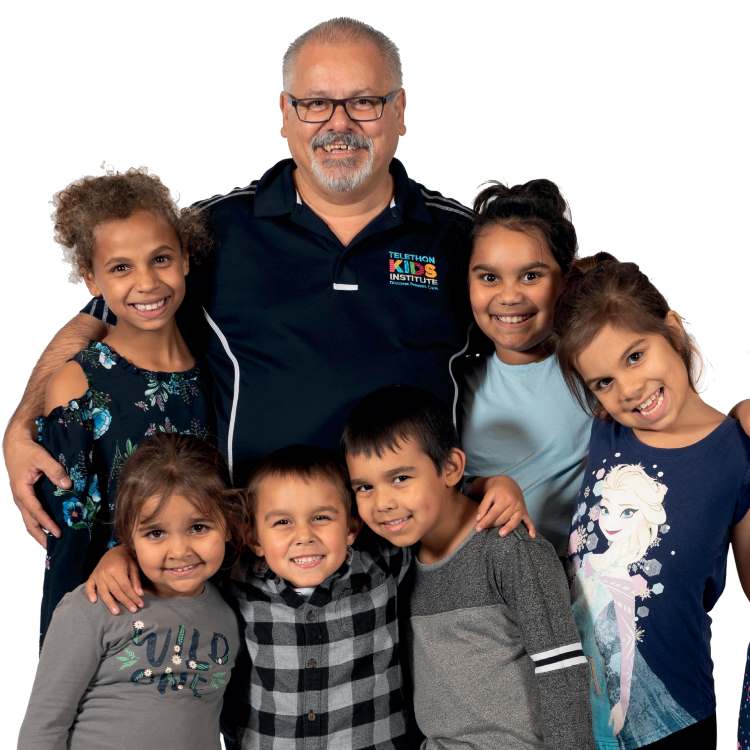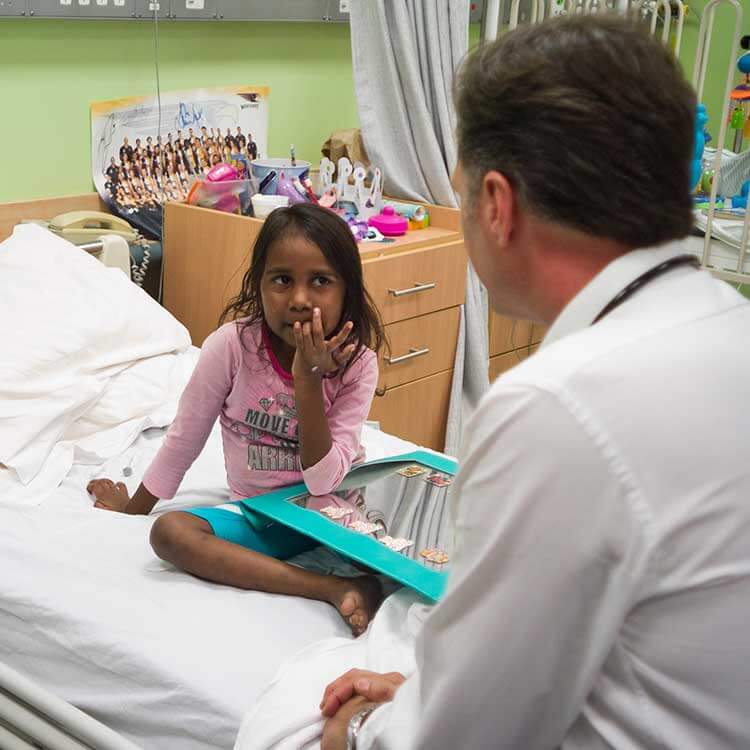Search

News & Events
Elders lift their voices to bridge the gap for kidsLed by nine Elders, the Ngulluk Koolunga Ngulluk Koort Project is working to generate a better understanding of early childhood development from an Aboriginal/Nyoongar perspective.

News & Events
Bold bid to end rheumatic heart diseaseSome of the nation’s leading medical researchers will converge on Darwin this week to step out a plan to wipe out rheumatic heart disease.
Research
The Koolungar (Children) Moorditj (Strong) Healthy Skin Project Part I: Conducting First Nations Research in Pediatric DermatologyIntegrating First Nations knowledge systems and Western research methodologies recognizes the strength, experience, and insight of First Nations peoples in addressing health issues in their communities. In research, this includes projects being led by First Nations Elders and peoples, including First Nations researchers in the team, and collecting data in ways that reflect First Nations ways of knowing, being, and doing.
Research
WA Aboriginal Health Knowledge NetworkA Network comprised of four regional sites to facilitate key medical, research and training activities undertaken in partnership with Aboriginal communities.
Research
The Kids KimberleyThe aim of establishing a local presence is based upon an intention to be by invitation considered as part of the Kimberley group of organisations as well ...
Research
CRE in Aboriginal Health and Wellbeing (CREAHW)CREAHW is a program of intervention research focused on achieving sustainable change for the Aboriginal community & improving the lives of Aboriginal people.
Research
Stillbirth risk prediction using machine learning for a large cohort of births from Western Australia, 1980–2015Almost half of stillbirths could be potentially identified antenatally based on a combination of factors
Research
Psychosocial disadvantage and residential remoteness is associated with Aboriginal women's mental health prior to childbirthOptimal mental health in the pre-conception, pregnancy and postpartum periods is important for both maternal and infant wellbeing. Few studies, however, have focused on Indigenous women and the specific risk and protective factors that may prompt vulnerability to perinatal mental disorders in this culturally diverse population.
Research
‘I have to jump like a kangaroo … I have to slither like a snake’. A qualitative evaluation of elder-led art workshops in the child protection sectorIndigenous peoples globally have incurred significant harm resulting from colonisation and the forced removal of children from their families, culture, communities and Country. Over the last two decades in Australia, there have been calls for significant reform and there has been a raft of policy changes in child protection services. However the problems are intractable, and the numbers of Indigenous children being removed from their families continues to rise.

The fifth Big Elders meeting/gathering was held on the Wednesday, 28th of February 2024 at Burswood on Swan.
